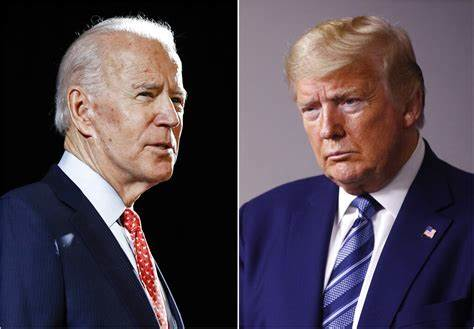Just over one quarter (26%) of U.S. adults believe their personal finances have improved over the past four years, according to a new Bankrate.com report. Meanwhile, 25% say things have gotten worse and 40% are in the same financial position now as they were back in January 2017. About 8% responded “I don’t know.”
Thinking ahead to the presidential election in November, 39% believe a Biden/Harris ticket would be better for their personal financial situation moving forward, compared to 35% who point to Trump/Pence.
https://www.bankrate.com/surveys/presidential-election-financial-outlook/
Those who believe their finances are better now than they were back in January 2017 tend to be male (31% vs. 22% of females), white (31% vs. 17% of all other races), college graduates (29% vs. 22% with no more than a high school diploma), baby boomers (33%, ages 56-74 vs. 25% of Gen Xers, ages 40-55, and 22% of millennials, ages 24-39) and those with income levels of $80,000 or more (41% vs. 19% who make less than $30,000). Additionally, just 12% of Democrats feel their finances improved under Trump vs. 53% of Republicans, and 39% of Democrats believe things have gotten worse vs. 8% of Republicans. Independents are more split (26% say better and 25% say worse).
While U.S. adults are generally divided as to whether a Biden/Harris ticket (39%) or Trump/Pence (35%) would be better for their personal financial situation, nearly 1 in 6 (15%) is still unsure (the remaining 11% say neither). The likelihood to remain undecided is greatest among Gen Zers (ages 18-23, 27%) and decreases with age (23% of millennials, 18% of Gen Xers, 6% of baby boomers and 3% of the Silent Generation).
Those supporting Trump/Pence tend to be white, male and older (ages 55-up), while those supporting Biden/Harris are more often female, black and college educated.
“Despite the president’s rhetoric about his superior handling of the economy, Americans are very much divided as to whether they’d be better off with him still at the helm,” said Bankrate.com senior economic analyst Mark Hamrick. “No matter which candidate is sitting in the White House after Inauguration Day in 2021, significant economic challenges will persist. Unemployment is likely to remain substantially higher than pre-pandemic levels. Some industries will continue to struggle, dampening hiring prospects.”
The president’s response to the coronavirus pandemic could do more harm than good at the polls this fall; 39% are less likely to vote for him as a result (including 34% much less likely), compared to 26% who are more likely (18% much more likely). The remainder are just as likely (24%) or don’t know (11%).
Again, Democrats and Republicans are deeply divided on this topic, with only 8% of Democrats being more likely to vote for him vs. 62% of Republicans. Similarly, 69% of Democrats are less likely to vote for him, compared to 8% of Republicans. Independents are more likely to side with Democrats on this issue; 37% are less likely to vote for Trump due to his COVID-19 response, while 22% are more likely.
When looking ahead to a year from now, 26% of U.S. adults believe their financial situations will be better. Fewer (13%) believe things will be worse in a year, while the majority (39%) anticipate things staying about the same. Still, more than 1 in 5 (22%) remain uncertain.
Men, those with more than a high school diploma, the highest earners and Republicans are more optimistic about the next 12 months, while adults ages 18-54, the lowest earners, and Democrats and Independents are more likely to believe their financial situations will be worse in a year.
“The severity of the COVID-19 pandemic and related economic downturn have shaken-up everyday lives and the political landscape with it,” added Hamrick. “Only about 1 in 4 Americans believe their personal finances will be better this time next year, underscoring a high degree of concern and uncertainty. That wouldn’t tend to reflect well on any incumbent president, providing Joe Biden an opportunity.”
Thanks for reading CPA Practice Advisor!
Subscribe Already registered? Log In
Need more information? Read the FAQs



